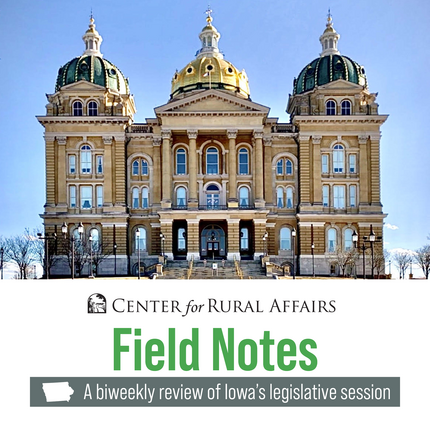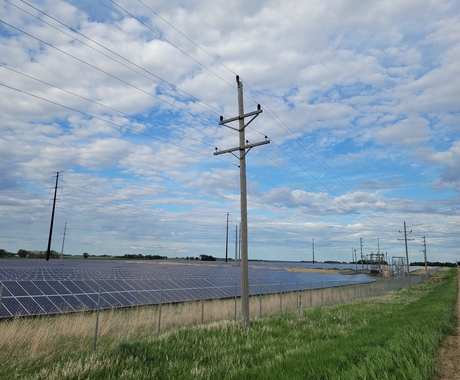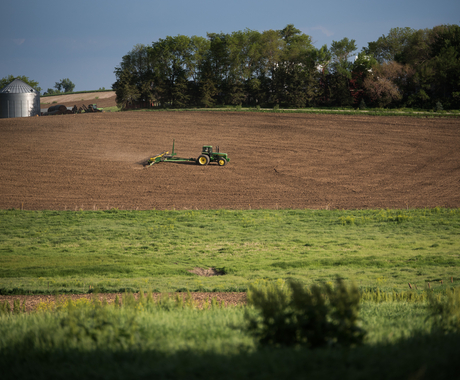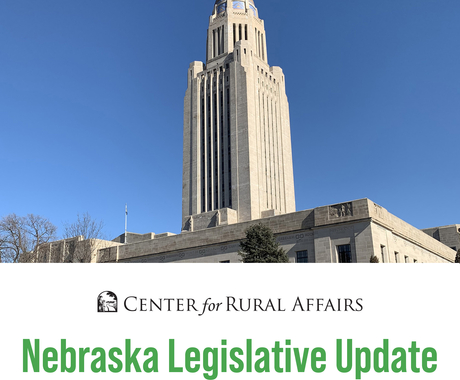In the early morning hours on Saturday, April 20, the Iowa Legislature adjourned for the final time this session. As they moved toward a conclusion, lawmakers passed a series of budget bills and final priorities.
Despite our advocacy efforts in recent months, the Grocery Reinvestment Fund and Program and the Local Produce Processing Fund and Program did not reach the finish line. However, we were encouraged to see appropriations pass for several Choose Iowa programs as part of Senate File (SF) 2421.
Choose Iowa’s Value-Added Grants Program will receive $463,000; the Promotional Program, $600,000; and the Dairy Innovation and Revitalization Program, $750,000. Additionally, Choose Iowa received $100,000 in new funding specifically allocated for its Food Pilot Program. Furthermore, we were glad to see the Butchery Innovation and Revitalization Program maintain funding for the upcoming year.
This year, our staff engaged on several bills related to renewable energy. Most importantly, we offered an alternative approach to Senate Study Bill (SSB) 3169, which would have circumvented local control by setting statewide wind siting standards. We directly engaged legislators during the bill’s subcommittee meeting to advocate for a more voluntary approach. Since no amendment was filed, we were content to see it not pass the first funnel deadline.
Conversations also continued this year to promote Iowa’s Watershed Management Authorities (WMAs). We were satisfied House File (HF) 2642 did not move forward after numerous discussions and suggested amendments. The Center will continue to meet with local WMA leaders in the interim to discuss what action we might take next session to advocate further and secure funding for Iowa’s WMAs.
As we conclude our regular updates for this year, we extend our sincere appreciation to all of you for following along this session, engaging with your lawmakers, and caring about the issues that impact rural Iowa. As we look ahead to 2025, please don’t hesitate to reach out to me at cynthiaf@cfra.org or 402.687.2100 ext. 1034 to make your rural voice heard.
Below is an overview of the bills we engaged with this session, and where they landed.
Rural grocery
HF 2599 — Support: Rep. Brian Lohse introduced this bill in the House, and Rep. Chad Ingels served as the floor manager. This Center priority bill would have created the Grocer Reinvestment Fund and Program, appropriated money from the general fund, and given the Iowa Economic Development Authority direction to create a grant program for new or current grocery stores located in areas that are both underserved and low or moderate income. The legislation would prioritize cost-saving efforts and business efficiency measures to ensure the long-term sustainability of locally owned grocery stores. Additionally, the bill included modifications to the Iowa Code under the Local Food and Farm Program. It would have changed the purpose and goals of the program to include and increase the sale of local food in grocery stores.
Final status: Did not pass out of the House Economic Growth and Technology Committee.
Water quality
HF 2642 — Monitor: Introduced in the House Agriculture Committee, this bill related to the conservation and improvement of soil and water resources, including a name change to and restrictions on watershed management authorities (WMAs) in Iowa. The bill would have allowed soil and water conservation districts to broaden their purview by prioritizing soil health and required WMAs to spend all money for water quality nutrient reduction projects on practices designated by the Iowa Nutrient Reduction Strategy.
Final status: Passed out of the House Appropriations Committee, with no companion bill in the Senate.
SF 2385 — Monitor: Introduced by the Senate State Government Committee, this bill related to boards, commissions, committees, councils, and other entities of state government. Although the bill was long, one committee created pertains to water quality. The soil conservation and water quality committee created will be located under the division of soil conservation and water quality within the Iowa Department of Agriculture and Land Stewardship. The committee will provide advice, expertise, and consultation to promote the installation of soil and water conservation practices in Iowa.
Final status: Awaiting the governor’s signature.
Renewable energy
SSB 3169 — Undecided: Introduced by Sen. Commerce Chairperson Waylon Brown, this bill would have removed a county's ability to self-regulate wind energy within their county by forcing Boards of Supervisors to pass wind energy ordinances that meet certain standards laid out in the bill. The bill had a Senate Commerce Subcommittee hearing on Tuesday, Feb. 13. While the standards laid out in the bill fell within the Center’s wind energy siting recommendations for counties, we opposed removing siting authority from the purview of counties. As a result, we provided verbal testimony advocating for an amendment that would have made the standards voluntary, allowing them to serve as guidance and a model while maintaining local control.
Final status: Did not pass out of the Senate Commerce Committee.
SF 2356 — Support: Introduced by Chairperson Waylon Brown, this bill would have established a community solar program with all electric public utilities and set standards for billing methods. Community solar programs already exist in Iowa, but this legislation would have required public utilities to provide bill credits to subscribers of an independently owned project for their share of the energy produced by the project.
Final status: Passed out of the Commerce Committee but did not clear the second funnel deadline.
HF 2279 — Monitor: Introduced by Reps. Hans Wilz, Brian Lohse, and Sean Bagniewski previously as HSB 555, this bill offered several amendments related to public utility laws, including the elimination of a reporting requirement for the Small Wind Innovation Zone program. Most notably, however, the bill will add nuclear and electric storage units to the definition of alternate energy production facilities. This adjustment will allow public utilities to include energy storage in advanced rate-making cases, an important step in adequately planning for future public energy projects.
Final status: Awaiting the governor's signature.
Other bills of interest
HF 2641 — Support: Proposed by the Iowa Department of Agriculture and Land Stewardship, this legislation is related to programs and regulations administered by the department. The Center supports two key components of the bill—the Choose Iowa Promotional Program, which provides consumers an opportunity to purchase food originating in the state, will be designated with the Choose Iowa logo, and the Value-Added Grants Fund and Program, which supports projects and services that add value to agricultural commodities produced in Iowa.
Final status: Awaiting the governor’s signature.
HF 2257 — Support: Proposed by the Iowa Department of Agriculture and Land Stewardship, this legislation will amend the Meat and Poultry Inspection Act. It will allow poultry processors to engage in custom operations if they maintain their state-licensed inspections. All packages processed on a custom basis must be marked “not for sale” and kept identified until the owner picks up the order.
Final status: Awaiting the governor’s signature.
HF 2674 — Support: Introduced by Chairperson Bobby Kaufmann on the Ways and Means Committee, this bill related to tax credits being awarded by the Iowa Economic Development Authority for capital contributions made to the Certified Rural Business Growth Fund for investments in qualified businesses. Limits were offered for those who could receive money from the fund. It would have supported rural communities across the state of Iowa.
Final status: Passed the House with unanimous consent and passed through a Senate subcommittee, but did not progress any further.
HF 2682 — Monitor: This bill was introduced by the Committee on Ways and Means. It would have updated the definition of a food processing plant to include operations located on a farm or private residence. Licenses for those businesses require a fee and the bill provides the parameters.
Final status: Passed by the House unanimously but did not progress any further.





